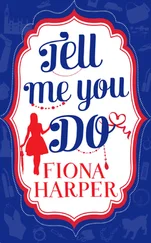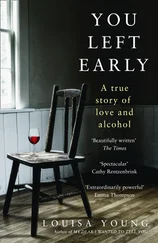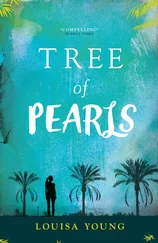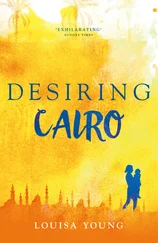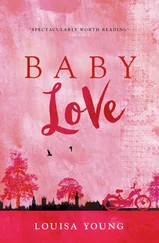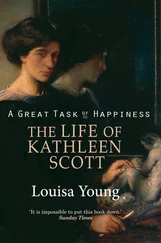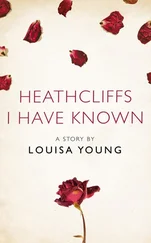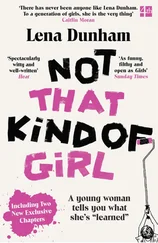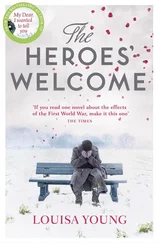Noel was jolly sorry, and said so gallantly.
Mrs Waveney thought: Look at him, poor thing. We could probably spare those clothes.
Her husband Robert, the well-known orchestral conductor, looked in. ‘Hello there,’ he said, or something like that. ‘What’s all this, then?’ Riley knew who he was. He’d seen him crossing the park often enough to the Albert Hall. He’d seen his picture in the Illustrated News .
Nadine, whose honey-yellow eyes slanted like a naughty fairy’s, glanced and smiled.
Riley took in the well-known dad, the friendly family, the cuddly maid, the paintings on the wall, the grand piano, the books on the shelves, the smiling girl. It was not like his house – though his house was very snug, and contained his parents and his little sisters, whom he loved and ignored, except his dad, who had given him a clockwork grasshopper for Christmas, and could still throw him up in the air. He was a fireman, and he said, ‘Don’t look to the fire brigade, Riley, it’s a good job but you can do better.’
Riley was neither shy nor ashamed to be there. He did not feel that he was in the wrong place. He tasted the hot sweet chocolate, and he looked around boldly, and he knew that this was what his dad was talking about. Better.
His clothes did not dry, and Jacqueline, who thought him sweet, with his bright eyes and curly hair, suggested he come the next day for them. His mother Bethan, a devoted woman of Welsh extraction and firm ideas, baked a batch of tarts that he was to offer as a thank-you, and remember to bring the tin back.
‘Don’t know why,’ said his dad, John, in his undershirt in the kitchen chair, braces slung over his wide shoulders, looking at the paper. ‘It was their boy knocked Riley into the pond.’
‘It shows manners,’ said Bethan. ‘Go to the back door, won’t you, Riley love? And watch out for ’em!’ she called. The middle classes were always after something from the working man. As if they didn’t have enough. Not that I’d want it. Fancy ways . Bethan had been known to laugh out loud in the street at extremes of fashion among the better classes. She watched keenly, fearfully, as her only boy went down the street to visit the other world. He won’t fall for it, will he? He won’t get ideas and resentments? We don’t want it – he won’t. We’ve brought him up right . . . She found herself murmuring a blessing for him as he disappeared round the corner.
John rolled his eyes. Bethan was stuck and strung up about the middle classes. Scared of them, wanting what they had, pretending she didn’t, resenting them for having it, and on top of all that, there was her furious head-tossing pride in being a working woman with no need for any of that , thank you very much.
*
Riley didn’t think there was a back door, unless he went down the side alley. He went to the front door. He arrived at the same time as another visitor, an older man with a beard and an alluring turpentine smell, in a black velvet coat smoothed and shining with age. For a moment Riley held back, thinking of his mother, wondering, but the man said: “Hello there, young fella!’ and they went in together.
Riley, having been led to believe that posh people were standoffish, was surprised.
‘Hello, Riley!’ called Mrs Waveney. ‘Are those for us? Mmm – how lovely of you. Noel, darling, Riley is here! Rings for Barnes, would you, and ask for some tea?’
Riley soon worked it out. It is because they are not just posh, they are artists. On Sunday strolls in Kensington Gardens Bethan took pleasure in pointing out to him different types of posh, and how ridiculous they were. Johnno the Thief would do a similar thing, judging whose pocket was worth picking at Paddington station. Riley surveyed the old man’s velvet coat, the beautiful woman’s dark red curls, the taking a common-as-muck boy back to their very comfortable beautiful house, with the paintings and the strange items . . . a curved and shining dagger hanging on the wall, tiny ivory elephants in a glass-fronted cabinet. Artistic, definitely. Bethan would sneer, because her dad hadn’t let her sing when she was a girl, and Johnno would let them pass, because ones like that never had much cash on them.
‘Top bruise!’ Noel said enviously, and poked Riley’s cheekbone. The silent girl smiled at him again, and Riley smiled back. They were in the middle of decorating a fir tree with ribbons and shining orange fruit and glass balls. Riley had seen such things in the extraordinary windows of Selfridges, the new palace of splendours from which he had been chased two days before. This one was not so big but its colours sparked his eye.
‘Come and help us,’ said Mrs Waveney. ‘Can your little fingers tie these on?’ She passed him a clear round glass ball, light as sunlight, pure as a bubble.
‘Where should I put it?’ he asked.
‘Wherever you want, darling,’ she said.
He stared at the tree. Glass balls dangled on the sprigs of dark fir, hanging, gleaming. Pink like a rose petal in the sunken garden near the Orangery, pale green like the lime-walk leaves in spring, blue like the flash under a mallard’s wing on the Round Pond. There were too many bunched up at the top. He checked how many were still in the box. Plenty to cover the whole tree. Carefully, he fed the gold wire fixing of the clear ball round a sprig on a branch in the middle, quite deep in. It would reflect the light and balance the coloured baubles. Without thinking, he undid a couple of the coloured ones and redistributed them lower down.
The older man watched Riley, smiling, enjoying the care he took, noting his flat, broad-cheeked face, his scruffy curly hair, his dark eyes, his wounded look.
They drank tea, ate the jam tarts. Jacqueline was amused by the way Riley tucked in. Many boys would feel obliged to hold back, under the circumstances.
When the time came for Riley to leave, Robert Waveney said courteously, ‘Well, now, Riley, Sir Alfred likes your face. He wants to put it in a painting, on top of a goaty-legged faun. What do you think? Could you sit still long enough for him to paint you? He’d probably give you a shilling.’
Riley saw the gates of opportunity swinging open before his eyes. Beyond, he could see Better, shining in the distance like the lilies of heaven. ‘Course I can, Mr Waveney,’ he said.
Chapter Two
London, 1907–14
Riley, the Waveneys and Sir Alfred lived in a part of London that, from one street to another, couldn’t make up its mind. Riley’s home was a little house up by the canal, a working man’s cottage, in a row, damp, with a yard with a privy in it. Two minutes away was Paddington station, through which the whole empire passed, observed for pick-pocketing purposes by Johnno and by Riley out of pure human curiosity. (Riley did not pick pockets. He’d promised his mum.) Five minutes from there was Kensington Gardens, where the trees were tall and the grass was smooth and children in white petticoats dashed after hoops, and nannies in uniform dashed after them. If Riley went with Johnno, the park-keeper chased them out. If he went alone, and was clever about it, he could play there all day, watching ducks, climbing trees, diving and dipping in the Serpentine, spying on gardeners, learning statues by heart, hiding.
Beautiful houses lay along the north side of the park: Georgian villas with magnolias in their wide gardens; high white stucco-fronted mansions, mad fairy-tale apartment buildings six storeys high, with curved balconies and conservatories, and ornate bay windows at unlikely angles. The Waveneys’ was the first Riley had been into. Sir Alfred’s, in Orme Square, was the second. At the Waveneys’ he had fallen for the comfort; at Sir Alfred’s, it was first Messalina, the great dane, big enough to pull a cart, with her ebony satin jowls and quivering legs, and second the paint: the colours, and the smell, and the rich oily shining magnificence. And then the paintings: heroines and beggar maids, knights in gleaming silver-grey armour, coiling strings of flowers and loops of braided hair, emerald weeds floating under water, gauzy drapes of cloth you could see through to the wax-white glowing flesh beneath, glimpses of cavernous blue skies . . . all made of paint, and light seeming to come from inside the canvas. It looked like the real world, so real, but much, much better. It was a kind of miracle to Riley that such things could be created out of thick coloured oils squeezed from lead tubes.
Читать дальше
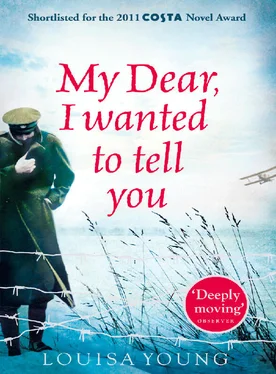
![Ally Carter - [Gallagher Girls 01] I'd Tell You I Love You But Then I'd Have to Kill You](/books/262179/ally-carter-gallagher-girls-01-i-d-tell-you-i-lo-thumb.webp)
